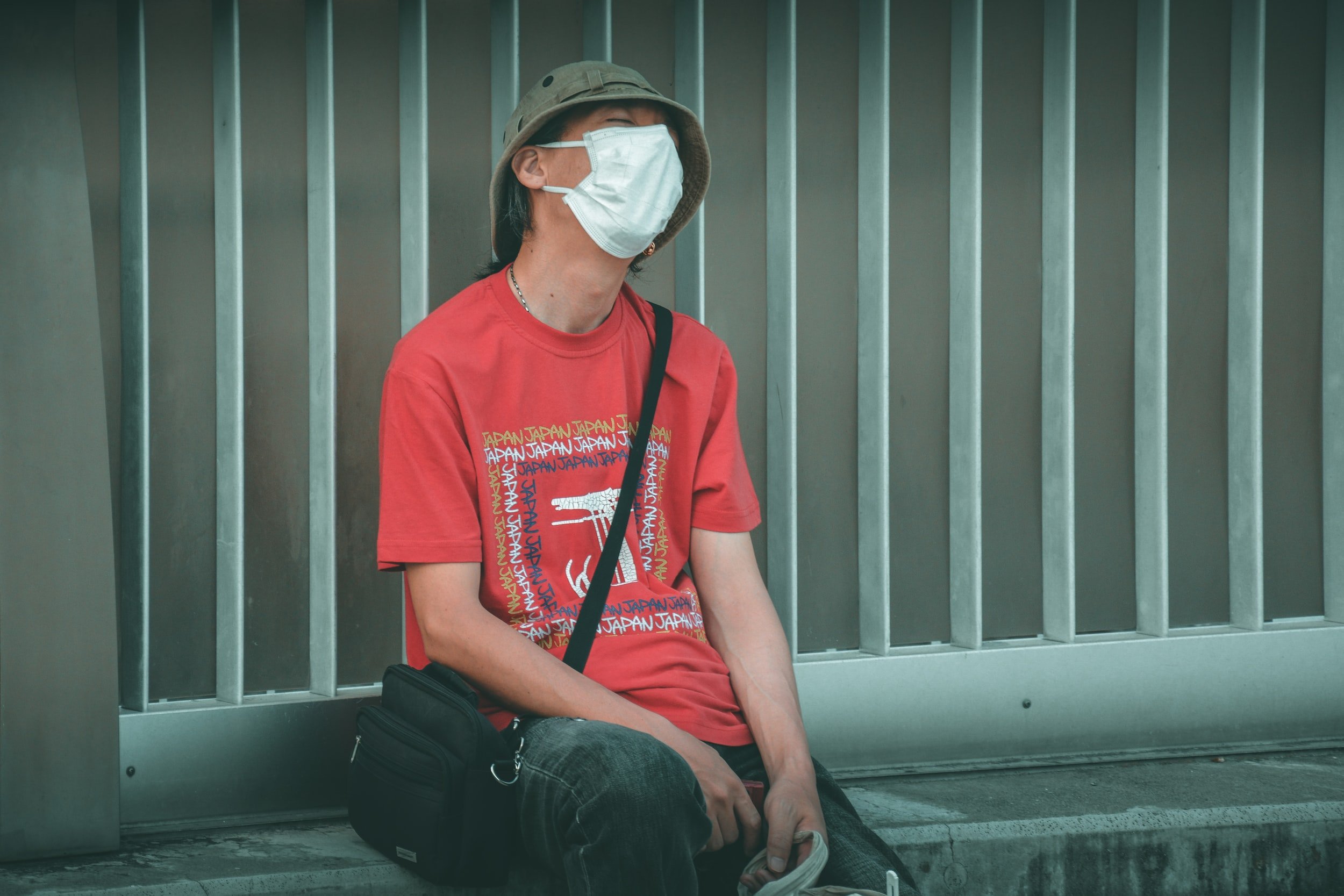Sensitive Research and the COVID 19 Pandemic
by Maria K. E. Lahman and Carlene J. Brown
Dr. Lahman served as Mentor-in-Residence for Academic Writing Month in November 2022. She is the author of Writing and Representing Qualitative Research, Ethics in Social Science Research: Becoming Culturally Responsive and the forthcoming Culturally Responsive Qualitative Research. Use the code MSPACEQ122 for a discount when ordering from SAGE Publishing. Carlene Brown is a doctoral student who serves as Dr. Lahman’s research assistant.
Of sensitive research Markowska-Manista and Górak-Sosnowska wrote
“By sensitive, we mean a broader term than ‘controversial,’ which refers to the probability of provoking public discussion or arguments. ‘Sensitive’ is an emotion-loaded term that is significant for an individual or a group for personal, political, or social reasons and—if raised—has the potential to cause negative feelings or provoke a conflict. ”
By sensitive, we mean a broader term than ‘controversial,’ which refers to the probability of provoking public discussion or arguments. ‘Sensitive’ is an emotion-loaded term that is significant for an individual or a group for personal, political, or social reasons and—if raised—has the potential to cause negative feelings or provoke a conflict ( (2022, p. 8).
Along with Beth Stover and Becky DeOliveira, we have been conducting sensitive narrative research with professional women who are moms of school-age children during a time of COVID. The moms need to have transitioned to full-time work from home while their children were also at home. This sample excludes academic moms such as us, who were researched more at the outset of COVID (e.g., Miller, 2020; Staniscuaski et al., 2020) reflecting both the deep stress academic moms were feeling and the ease of access to these participants during such chaotic times.
Our research is proceeding along the following steps. First, we took turns interviewing each other with the interview script and sharing images that were metaphors for our experiences. This allowed for fine tuning of interview questions, researcher reflexivity (Pillow, 2010) and vulnerability around our personal experiences prior to asking other moms about theirs. Second, research participant moms shared mementos about their experiences which we came to see as mom-entos. Mom-entos are reflective of momoir (Collins, nd), a genre of memoir where moms consider their lives with a focus on mothering. Momento as a Spanish word, fittingly, means moment. In a methodological sense mom-entos are the physical items that moms collect throughout their lives which reflect moments that are impactful to them.
Researchers Reflections
Image 1: A mom research participant’s mom-ento of COVID 19 experiences
Maria- A part of the research that heavily impacts me is how naive I was about COVID going into the research even though we were post receiving vaccines in the United States by that time. The research ethics request, I wrote, had wording indicating that the research was occurring post-COVID. Interview questions were worded as, “Now that we are past COVID,”… The research design was set up to have the interviews in moms’ homes or through web cameras depending on the moms’ preferences. As yet another wave of COVID rolled across the world interviews were moved to virtual only. Updating all of the wording was quite sobering.
Carlene- Motherhood, a sensitive topic in and of itself, is often fraught with anxiety and self-doubt even in the best of circumstances. Interviewing mothers who had weathered such an unprecedented and difficult event has been humbling and inspiring. It has greatly increased my awareness of the fragility and strength of this honorable yet oftentimes undervalued position. Ensuring that voices and diverse stories were recorded as authentically and unaltered as possible quickly became my primary concern. Allowing participants to be truly heard and “seen” has yielded rich and affecting narrative. Important stories are being shared not only verbally but also symbolically as each mother has been asked to share a mom-ento. The mom-entos have come in the form of a variety of images, primarily of children and family. I once heard that mothers are curators of memories, and my experience with this research has found this to be true. As participants convey the symbolism and deep sense of meaning tied to the effects they have chosen to share, I am witnessing first-hand the importance and necessity of curating memories.
One of the moms shared the image (see image 1) of her baby for her mom-ento for COVID 19, sharing her son was
about four months post-op from his open-heart surgery at the time…and…healing so, SO well. He will forever be my light during such a dark and scary time in the world and also my reminder that there’s always something bigger for us than the circumstances we may be facing!
This participant’s quote embodies the juxtaposition of the delicate yet powerful nature of motherhood during a global pandemic and the beauty that can be found in the most trying times. It also highlights the importance of conducting and sharing such sensitive research as poignant and meaningful historical moments would remain obscure and undiscovered, living only in the memories of those mothers who worked so hard to hold it all together in a season of confusion, chaos, and instability.
Five Researcher Considerations
● Carefully consider how recently the research participant will have engaged with the sensitive issue when recruiting. For example, should they be one year past the loss if the research is about death or loss? The closer they are to the occurrence of the sensitive issue or if it is something they live with (e.g., chronic illness), the more potentially vulnerable they will be during the research.
● Along with negative or sad experiences, explore moments of joy, positive experiences, ways to shore up resilience, and what recommendations research participants have for others.
● What avenues or check-ins have you created for the research participants to communicate with you about the impact of being part of sensitive research?
● For COVID-19 research specifically, people may also be impacted by death, job or significant money loss, and family disagreement about how to approach COVID safety precautions (e.g., vaccinations, masks, distancing).
● Ahead of time, think through how the research may impact you emotionally—plan for self-care, including someone you can debrief with.
We look forward to continuing this research and learning more from these resilient moms’ narratives.
References
Collins (nd). https://www.collinsdictionary.com/us/dictionary/english/momoir
Mallon, S., & Elliott, I. (2021). What is ‘sensitive’ about sensitive research? The sensitive researchers’ perspective. International Journal of Social Research Methodology, 24(5), 523-535.
Markowska-Manista, U., & Górak-Sosnowska, K. (2022). Tackling sensitive and controversial topics in social research - sensitivity of the field. Society Register, 6(2), 7–16. https://doi.org/10.14746/sr.2022.6.2.01
Miller, K. E. (2020) The ethics of care and academic motherhood amid Covid‐19. Gender, Work & Organization. DOI: 10.1111/gwao.12547
Pillow, W. S. (2010). Dangerous reflexivity: Rigour, responsibility and reflexivity in qualitative
research. The Routledge doctoral student’s companion, 270-82.
Russomanno, J., Patterson, J. G., & Tree, J. M. J. (2019). Social media recruitment of marginalized, hard-to-reach populations: development of recruitment and monitoring guidelines. JMIR Public Health and Surveillance, 5(4), e14886.
Staniscuaski, F., Reichert, F., Werneck, F. P., de Oliveira, L., Mello-Carpes, P. B., Soletti, R. C., & Schwartz, I. V. D. (2020). Impact of COVID-19 on academic mothers. Science, 368(6492), 724-724.
Resources for Further Reading
Cummins, M. W., & Brannon, G. E. (2022). Mothering in a pandemic: Navigating care work, intensive motherhood, and covid-19. Gender Issues. https://doi.org/10.1007/s12147-022-09295-w
Del Boca, D., Oggero, N., Profeta, P., & Rossi, M. (2020). Women’s and men’s work, housework and childcare, before and during COVID-19. Review of Economics of the Household, 18(4), 1001–1017. https://doi.org/10.1007/s11150-020-09502-1
Friedman, M., Kostka Lichtfuss, K., Martignetti, L., & Gingras, J. (2021). “It feels a bit like drowning”: Expectations and experiences of motherhood during COVID-19. Atlantis, 42(1), 47–57. https://doi.org/10.7202/1082015ar
Lahman, M. K. E. (2017). Social science research ethics: Becoming culturally responsive. SAGE Publishing.
Liamputtong, P. (2007). Researching the vulnerable: A guide to sensitive research methods. SAGE Publishing.
Martucci, S. (2021). He’s working from home and I’m at home trying to work: Experiences of childcare and the work–family balance among mothers during covid-19. Journal of Family Issues. https://doi.org/10.1177/0192513x211048476
O’Reilly, A. (2021). “Certainly not an equal-opportunity pandemic”: Mothers, mothering, and COVID-19, 41–52. https://doi.org/10.2307/j.ctv1h45mcj.6
Petts, R., Carlson, D. L., & Pepin, J. R. (2020). A gendered pandemic: Childcare, homeschooling, and parents’ employment during COVID-19. https://doi.org/10.31235/osf.io/gwk
More Methodspace posts about sensitive research
















For Pride Month 2023, learn respectful ways to study LGBTQ+ people and related issues.